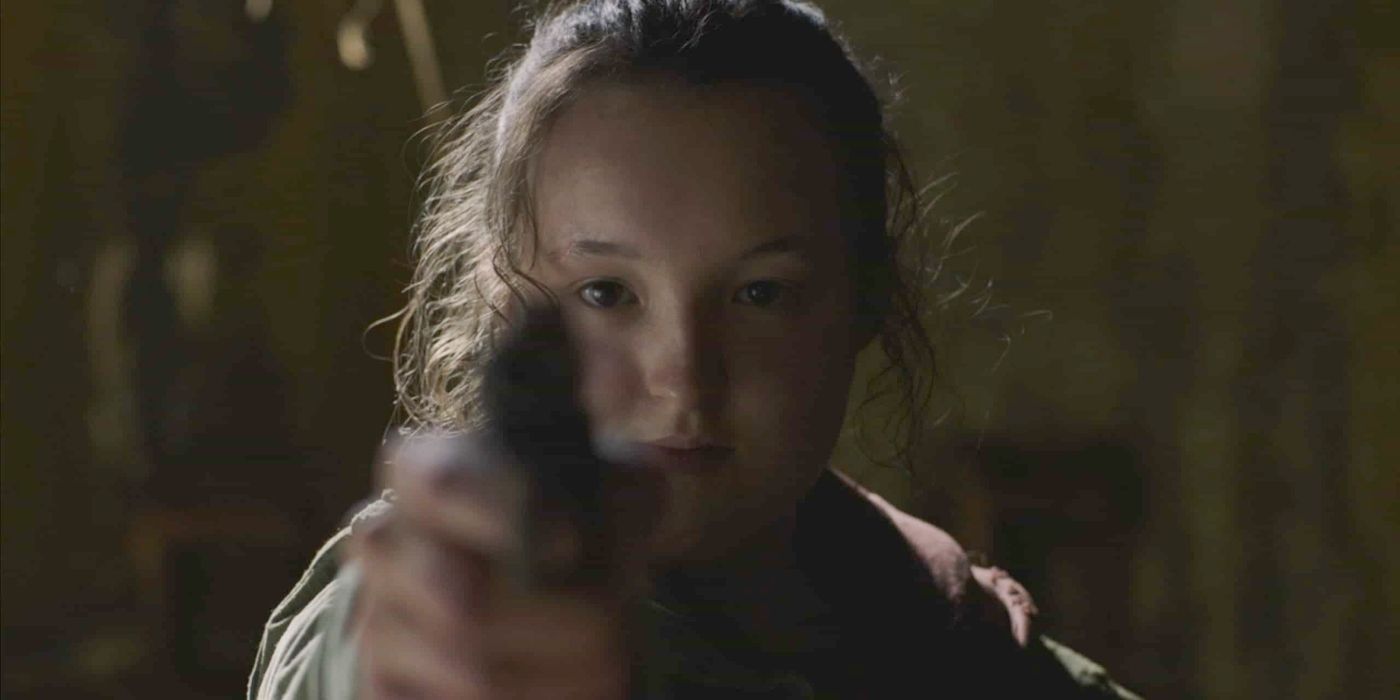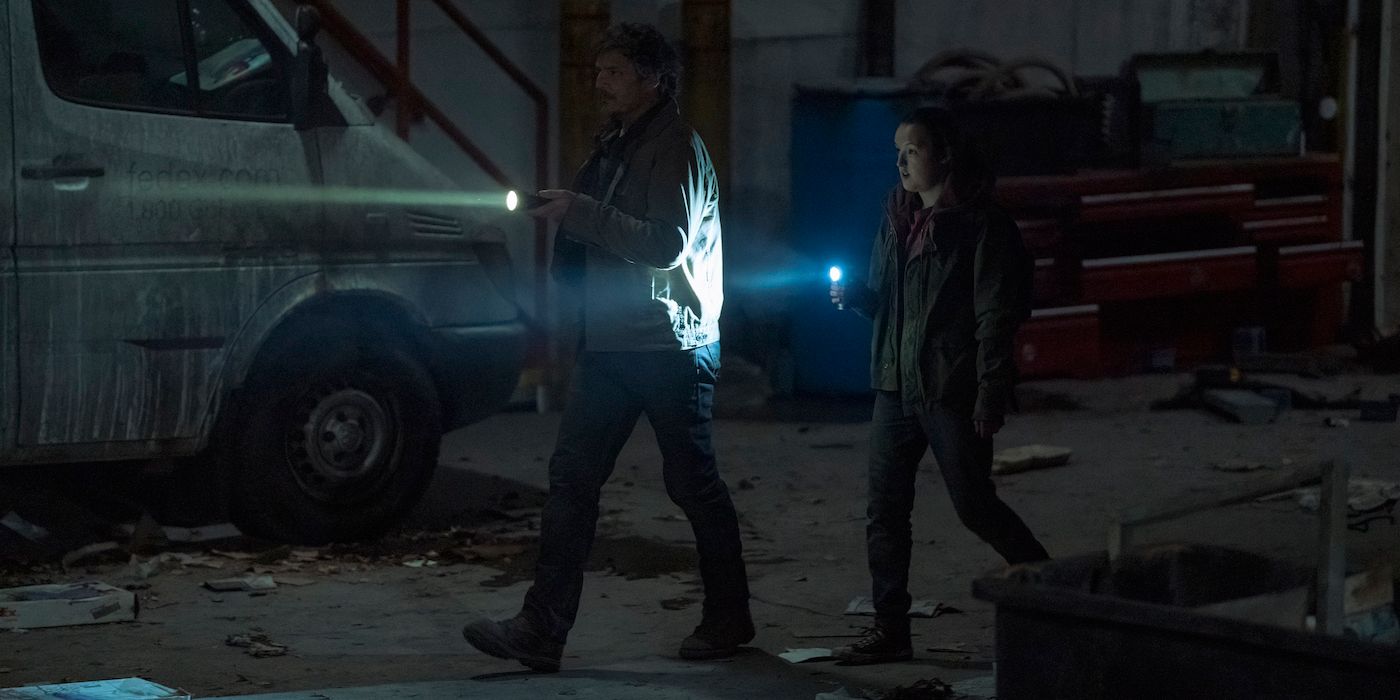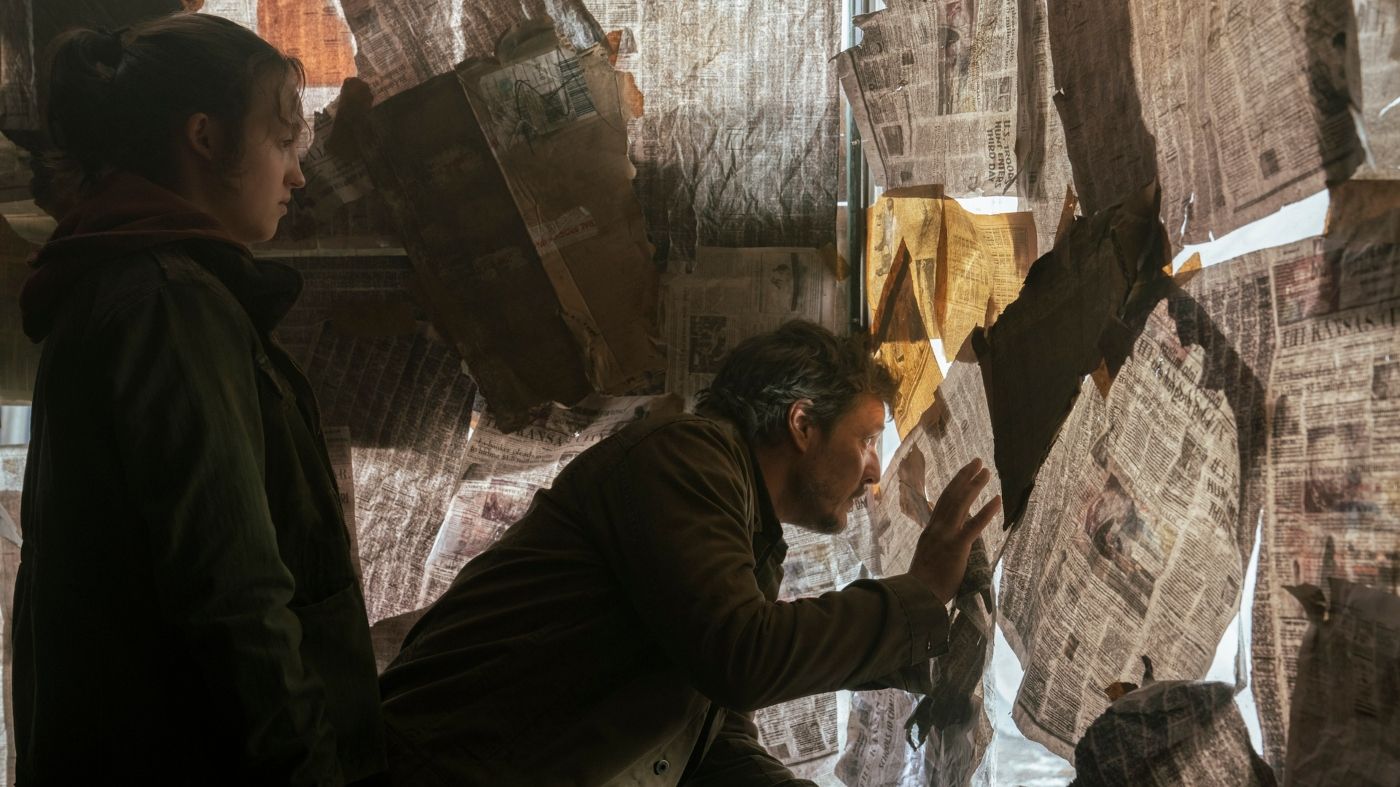Editor's note: The below contains spoilers for Episode 4 of The Last of Us.This week's episode of The Last of Us, "Please Hold My Hand," finally has Ellie (Bella Ramsey) get the gun she pestered Joel (Pedro Pascal) for so long about. It took her three episodes, but her guardian finally gave in after she displayed enough awareness of what it meant to wield a weapon to the point of saving his life. This is never an easy topic to deal with and Joel knows it, especially seeing as Ellie is still a kid, but when you live in a post-apocalyptic world infested with zombies, well, maybe it does have its merits, so he lets her keep it.
The episode begins showing Ellie posing with her gun in front of a mirror, almost in a callback to Taxi Driver's iconic scene in which Travis Bickle (Robert De Niro) does the same. These scenes do have much in common, despite the age difference between the characters, as they both display highly fetishized views on guns and violence, which is, unfortunately, a recipe for disaster. As someone who has killed enough to the point of being ashamed of it, Joel understands this, too, meaning he has the responsibility of providing Ellie with something Travis never had: guidance. But trust goes both ways, and carrying a gun requires a lot of it...
Joel and Ellie's Trust in Each Other Begins to Grow
Before leaving the bathroom where she was posing with a gun, Ellie makes sure to hide it in her backpack and continue keeping it a secret from Joel. She exits the room and Joel is still his usual closed-off self. She tries to break through to him with the jokes and puns in her book, but he's still doing his best to keep it serious with her. "You're cargo," he tells her after explaining that family is why you keep fighting even after everything ends. By the end of the episode, though, he laughs out loud about her diarrhea joke. What happened to motivate such a drastic change? Was the joke that good?
Well, yes, but that's not it. "Please Hold My Hand" gives our power duo the actual start of their journey after the first set of three "introductory" episodes, and the plot thickens real quick. They are forced to cut their road trip short and enter Kansas City, losing their car in the process and quickly making an enemy of the militia led by Kathleen (Melanie Lynskey). They are cornered in a laundromat and, just as Joel is about to lose his life, Ellie reveals her weapon and shoots his assailant, having to hand it to Joel right afterward.
Her carrying a concealed gun would surely mean a violation of trust, but, at that point, there wasn't much trust to begin with, too. In the previous episode, Joel even lays down the ground rules that Ellie has to follow, trying to make sure she wouldn't do anything she wasn't supposed to. And trust isn't something you establish by telling jokes, but by taking affirmative action when it's needed — the jokes come after. When Ellie intervened in Joel's fight with Bryan (Juan Magana) in order to save his life, that was an example.
Joel Has a Crucial Role in Keeping Ellie in Check
After that moment, not only does Joel agree to let her have her own weapon, but he also teaches her how to properly carry one. He also allows himself to laugh at her jokes and even to sleep — at the beginning of the episode, when they camp in the woods, he stood up all night at guard. While Ellie was constantly seeking connection, he did everything he could to remain closed and is now opening up. Those were the first signs of trust being established between the two.
It's important to note how The Last of Us has built an important aspect of Joel's character: respect. He is a person who values strength and dependability, and that's why he was able to form lasting relationships with Tess (Anna Torv) and Bill (Nick Offerman). They were strong both mentally and physically and knew what to do when they had to. When Ellie shoots Bryan, though, she shows Joel she is aware of the danger that a gun represents — she doesn't shoot to kill Bryan, but to immobilize him. Still awful, for sure, especially for a kid to be doing it, but that was as close as we hope she'll ever get to a self-defense scenario. Killing is the worst a person can do, and Ellie knows it enough to avoid it even in an emergency. She impresses Joel with this display of wisdom, and he teaches her how to properly carry a gun.
This moment is extremely important for Ellie, from an educational point of view. Joel instructs her on the technical aspects, of course, but he does it while reminding her that she shouldn't have to learn how to carry a gun and, more importantly, she shouldn't have to use one, but the world is closing in around them fast. It helps her deconstruct her fetish around an object that is meant for the sole purpose of killing, and she doesn't disagree with Joel about this. Despite how ugly the whole context is, it's a beautiful moment of learning for both of them, even as Ellie loses so much of her innocence.
Being a father, Joel understands the importance of getting her to keep as much of it as possible. That's why Ellie ultimately doesn't see the culmination of her act of violence after shooting Bryan. She's spared of the worst part of it but isn't shown any comfort either, because there is a lesson to be learned here. It's a harsh instance of forcing her to grow up further while also partially shielding her from the repercussions of pulling that trigger in the first place. Trust comes at a price, unfortunately, and Ellie is learning that the price for doing violence, even if necessary, is one that you pay with a piece of your soul. Lucky for us, she still has her joke book to keep spirits a little lighter.



